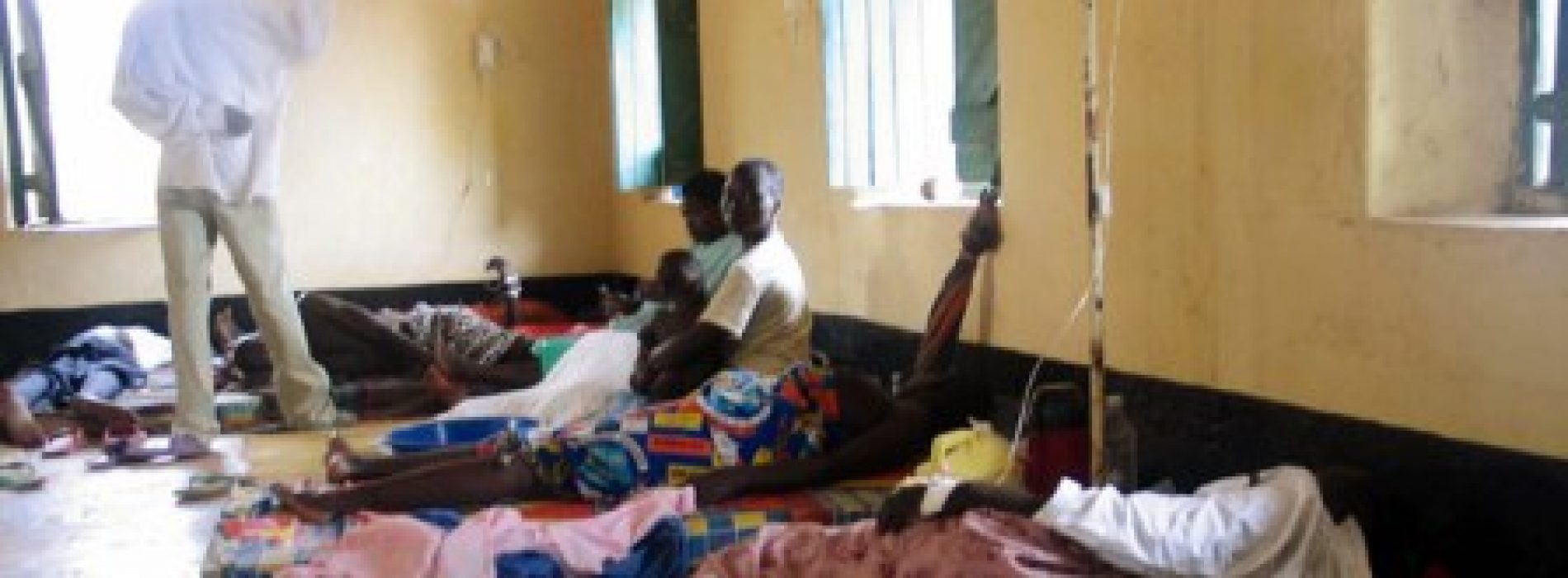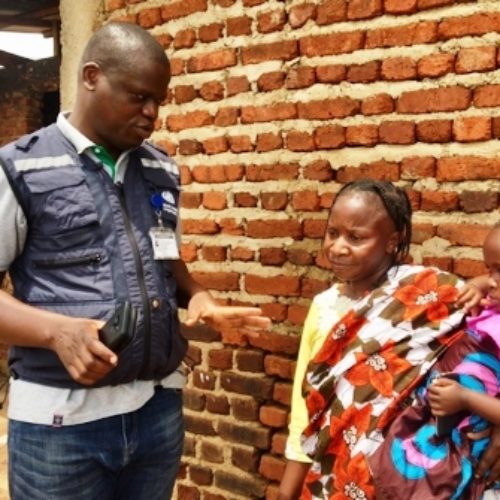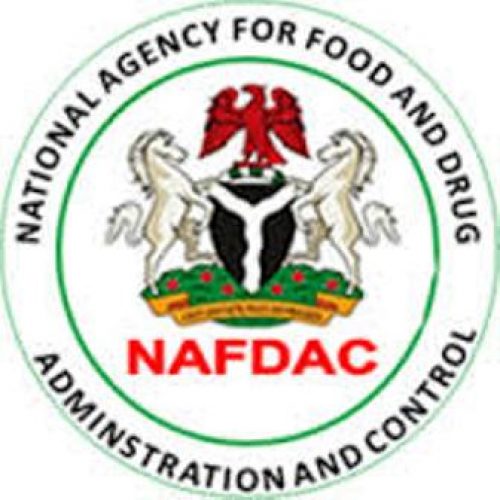<strong>Cholera cases surging fast in Africa</strong>
-
May surpass worst cases of 2021 if trend continues, WHO warns
-
Malawi launches national “End Cholera” campaign
Africa is witnessing an exponential rise in cholera cases amid a global surge. Cases recorded on the continent in the first month of 2023 alone have already risen by more than 30% of the total caseload reached in the whole of 2022.
According to a WHO report, an estimated 26 000 cases and 660 deaths have been reported as of 29 January 2023 in 10 African countries facing outbreaks since the beginning of the year. In 2022 nearly 80 000 cases and 1863 deaths were recorded from 15 affected countries.
If the current fast-rising trend continues, it could surpass the number of cases recorded in 2021, the worst year for cholera in Africa in nearly a decade. Average case fatality ratio is currently almost at 3%, above the 2.3% reached in 2022, and far exceeding the acceptable level of below 1%, WHO says
The bulk of the new cases and deaths have been recorded in Malawi, which is facing its worst cholera outbreak in two decades. Malawi’s neighbours Mozambique and Zambia have also recently reported cases. In East Africa, Ethiopia, Kenya and Somalia are responding to outbreaks amid a prolonged and harsh drought that has left millions of people in dire need of humanitarian assistance. Burundi, Cameroon, Democratic Republic of the Congo and Nigeria have also reported cases.
“We are witnessing a worrying scenario where conflict and extreme climatic events are worsening the triggers of cholera and increasing its toll on lives,” said Dr Matshidiso Moeti, World Health Organization (WHO) Regional Director for Africa. “It’s critical for African countries to scale up readiness to quickly detect cases and mount comprehensive and timely response. We are supporting governments to bolster key control measures to halt these outbreaks as quickly as possible.”
WHO is working with countries to ramp up disease surveillance, prevention and treatment measures, community engagement, as well as multi-sectoral coordination with partners and agencies to improve sanitation and provide safe water. The Organization has deployed 65 experts to five African countries, including 40 to Malawi. In addition, WHO has also disbursed US$ 6 million to kick-start emergency cholera response in Kenya, Malawi and Mozambique.
So far this year, around 3.3 million cholera vaccine doses have been delivered to the Democratic Republic of the Congo, Kenya and Mozambique—which is to take delivery in the coming days—through the International Coordinating Group on Vaccine Provision. This initiative aims to manage emergency supplies of vaccines and is a partnership of the International Federation of the Red Cross and Red Crescent Societies, Médecins sans Frontières United Nations Children’s Fund and WHO.
The increase in cholera outbreaks globally has put a huge strain on the availability of vaccines, prompting the International Coordinating Group on Vaccine Provision to temporarily suspend the standard two-dose vaccination regimen in cholera outbreak response campaigns, using instead a single-dose approach. A further surge in cholera outbreak risks deepening the shortage.
Cholera is an acute, extremely virulent infection that can spread rapidly and dehydration resulting in high morbidity and mortality. However, the disease is easily treatable. Most people can be treated successfully through prompt administration of oral rehydration solution or intravenous fluids.
“Every death due to cholera is preventable,” said Dr Moeti. “This disease is much a health challenge as it is a development one. As such investments in better sanitation and access to safe water formidably complement the public health initiatives to sustainably control and end cholera.”
Effective control relies on implementing comprehensive measures including enhanced epidemiological and laboratory surveillance to detect, confirm and quickly respond to outbreaks, improving access to treatment, vaccines, safe water and basic sanitation as well as effecting behavioural change and better hygiene practices among communities.
Meanwhile, the Government of Malawi, on February 13, launched the national Tithetse kolera (End Cholera) campaign to curb the outbreak affecting the country. The campaign was launched by H.E President Dr Lazarus McCarthy Chakwera in Mgona, one of the capital’s cholera hotspots.
Prior to the launch, the president visited a cholera treatment centre in Lilongwe area 25, which World Health Organization (WHO) helped refurbish and equip. The centre can now host up to 80 patients, compared with 20 patients previously.
Malawi is facing its worst cholera outbreak in two decades, with 42 422 cases and 1384 deaths as of 12 February 2023.
“Our purpose today is to work together to stop the spread of cholera. We need to stop this scourge because it is killing our people”, President Chakwera said.
The campaign aims to interrupt cholera transmission in all districts by the end of February 2023 and to reduce the cholera fatality rate from 3.2% to below 1%, which is considered by WHO as an indicator of a controlled cholera outbreak.
To achieve this goal, the campaign will focus on three broad activities: increasing access to appropriate cholera prevention and treatment health care services; increasing access to safe water, sanitation and improved food hygiene; and strengthening risk communication, community involvement, and social mobilization in cholera prevention and treatment.
About author
You might also like
Follow-up of last Ebola contacts ends
BENI, DRC – The observation period of the last people to have come in contact with an Ebola patient in the Democratic Republic of Congo has ended, another significant step
Depression comes to town, still the old story
Twenty-two years ago (how time flies), a multinational company introduced a new drug for the management of depression. It was the first of its kind and quite different from the
NAFDAC warns traders against use of ‘Snipper’ for food preservation
The National Agency for Food and Drug Administration and Control (NAFDAC) has again warned the general public that the use of Sniper and all other brands of ‘’Dichlorvos’’ (DDVP) in






0 Comments
No Comments Yet!
You can be first to comment this post!